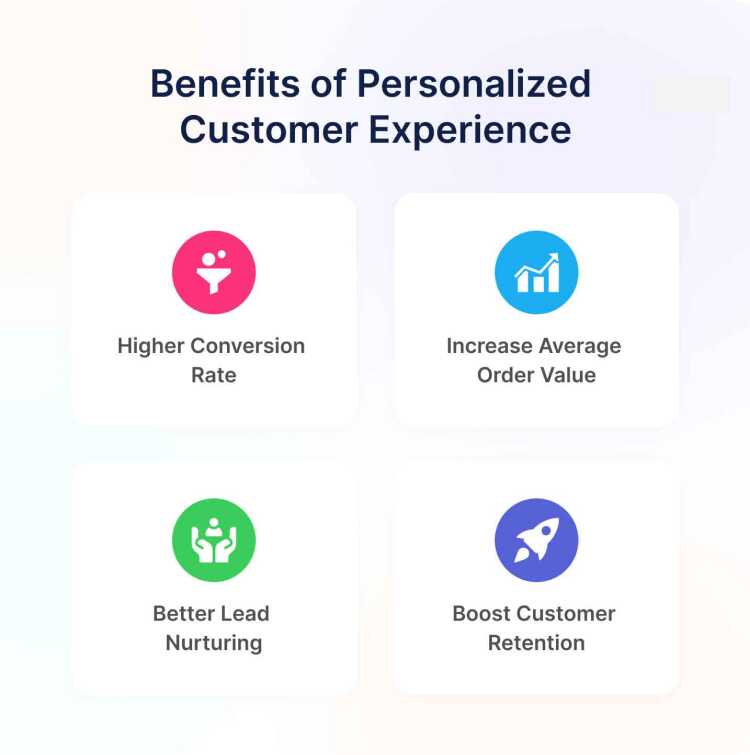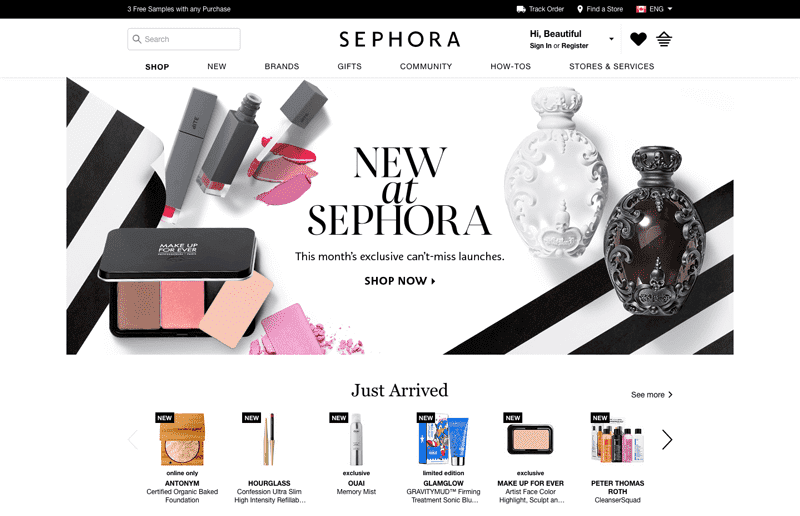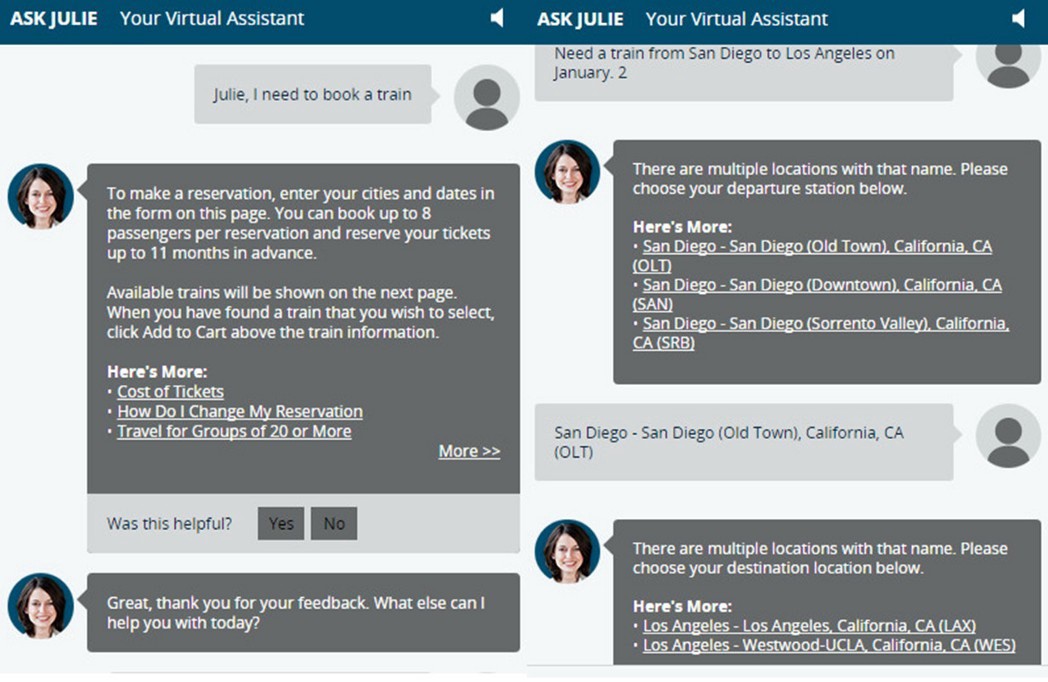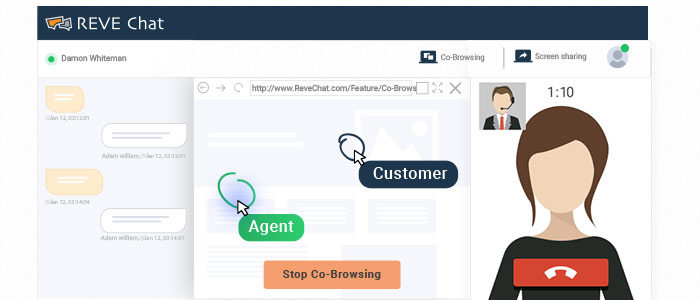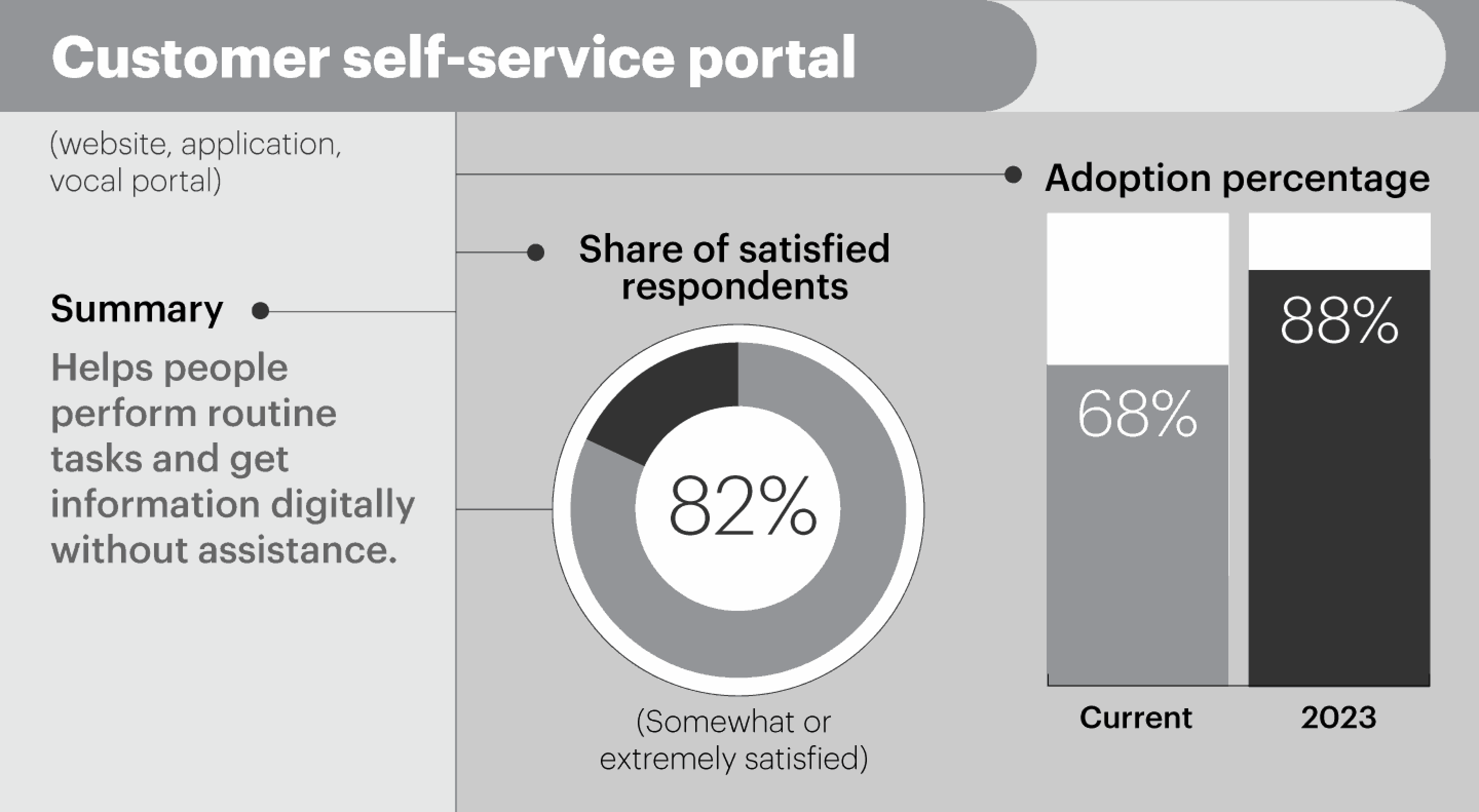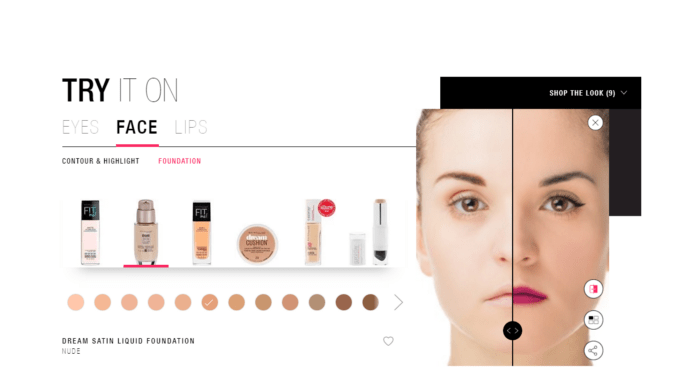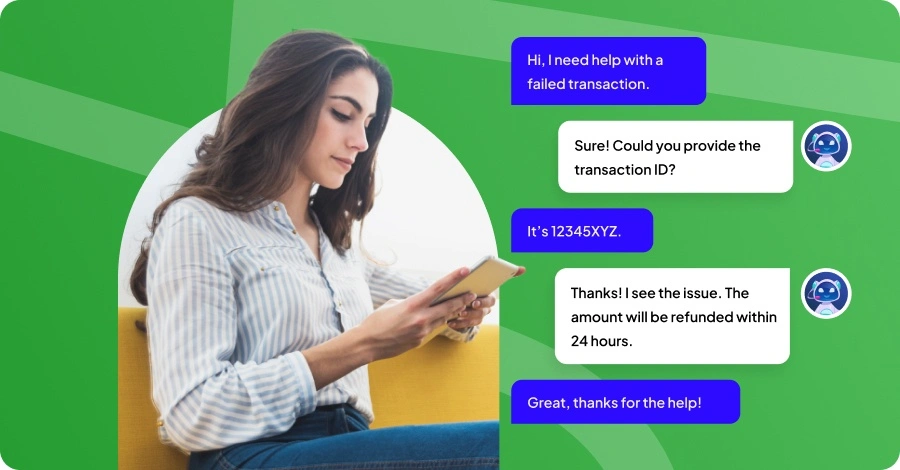Personalized Customer Experience: Tips, Best Practices & Examples
- August 25, 2021
- 15 mins read
- Listen
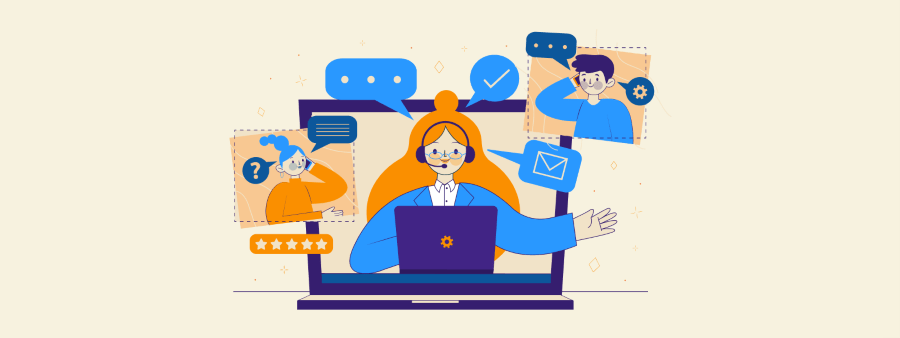
Table of Content
The digital age has elevated customer expectations for relevant, contextual, and convenient experiences to unprecedented heights. Customer experience (CX) is becoming a key decision making factor.
However, with automation many times, businesses lose the humanized touch when they scale. Hence, personalization is most important when it comes to customer experience. Also, as we know ‘one size fits all‘, you have to offer personalized customer experience to retain them.
Customers expect a personalized experience when they deal with a business, and as per Epsilon report, 80% of customers are more likely to make a purchase when businesses provide a customized experience.
Creating personalized customer experiences examples is no longer a “nice to have” – it is mandatory, in the competitive marketplace.
Prior to that dive into how having a well designed customer experience strategy drives engagement and builds relationships.
What is Personalized Customer Experience?
Personalized customer experience essentially means that you know or remember whom you are interacting with. It refers to a marketing technique that helps to tailor your communication with each customer, either during direct interactions or individualized messaging.
Customized experience is all about understanding customer journeys and designing services or
products to meet customer’s individual requirements. Personalized support not only benefits the customers, but if done right, it differentiates you from your competitors.
Key benefits of personalized customer experience
Customers remember highly positive and frictionless interactions with businesses, and they will continue to seek that experience the next time they think of making a purchase. They gravitate toward the brands that recognize them as individuals at every step of their journey.
Below are the reasons why positive customer experience is so important for businesses and different ways to provide customers with an experience that will turn them into your most loyal ambassadors.
- Boost customer retention – A lack of personalization, on the other hand, was frustrating to over 70% of respondents, highlighting the importance of a customized experience. It increases the number of repeat customers, revenue, and customer lifetime value (CLV).
- Higher conversion rate – Personalized interaction with customers delights and convinces them to spend more. They are more likely to buy more expensive items when they get customized experience.
- Drives customer loyalty – When businesses imbibe the culture of keeping the customer first from the initial stages of the client journey, they raise their expectations and increase customer loyalty.
- Increase average order value (AOV) – Personalized shopping experience drives impulse purchases. 49% of customers bought items they did not intend to buy due to a personalized recommendation from the brand they were doing business with.
10 Ways to Create a Nifty Personalized Customer Experience Examples
Highly personalized customer experiences, when offered to customers, enable businesses not only to differentiate themselves but also to gain a sustainable competitive advantage.
As customers look for customized support, the following practical ways will provide a framework that will allow your business to deliver a hyper personalized customer experience.
- Segment audience to build customer profiles
- Plan an omnichannel customer experience strategy
- Automate your customer experience
- Deliver contextual support
- Develop a self service experience
- Listen to customer feedback
- Allow customers to be a part of the personalization process
- Personalize every communication
- Empower employees to create personalized customer experience example
- Personalize your email communication
Following the different ways based on your business needs will help to personalize your customer communication and deliver excellent experience.
1. Segment your Target Audience
Not just segmentation, micro-segmentation is in trend.
Customer segmentation is the best way to collect insight into the market landscape. Customer segmentation is all about grouping customers into segments based on shared qualities.
There are a number of different ways to segment customers. How you segment really depends on your business and your objectives. Here are some common ways you might segment your customers.
- Demographic – Split your customers into demographic groups like gender, language or occupation.
- Geographic – Use information such as region, country, and state to segment customers to send targeted messaging to them.
- Behavior – Leverage your customer’s behavior and product usage data to segment customers such as purchase frequency, login sessions per month etc.
- Customer journey – Knowing where the customer is in the journey enables you to engage them in more appropriate ways.
Let’s say you have a customer base with a wide range of ages. By grouping customers into clusters, you can make certain assumptions about what they value most from their customer service experience and what approach is most likely to resonate with them.
Key ways segmentation helps in delivering personalized customer experience example:
- Enables to tailor customer communication – Your customer engagement model should rely on segments in order to communicate with customers in a way that resonates with them more.
- Focus on the right customers – Segmentation helps to gain critical insight into their customers. By using data to segment customers, you can understand which customers are at risk, what stage in the customer lifecycle they are.
- Allows to scale your customer support – You can design a model to support each group in the appropriate way by segmenting your customers and building customer profiles.
2. Plan an Omnichannel Customer Experience Strategy
Customers expect personalized and consistent experiences across multiple channels as they use them to reach out to your business. And if they don’t get a consistent experience they get annoyed and might reverse other brands.
Customers with omnichannel customer engagement strategies on an average 89% of their customers.
Businesses should shift to omnichannel to ensure consistent communication across all the channels such as website, social media, phone, in-app, stores, etc.
In broader terms, it means the social support over Facebook messenger should be equally convinced with your quality of website support and result in customer happiness.
How to deliver personalized customer experience by going omnichannel?
- Streamline all the customer conversations under one platform and provide a cohesive experience.
- Identify the most preferred channels and be 24×7 active across those channels to reduce average response time.
- Make use of tools like live chat, chatbots, visual tools to gain faster details of the issue and deliver first contact resolution.
Sephora is well known for the brilliance behind their omnichannel customer experience. They are known for the Beauty Insider Rewards program. Customers can tap into the Beauty Bag on their phone or desktop.
Their application of omnichannel marketing strategy has nurtured 11 million members, who spend 15 times more money on Sephora.com than the average user.
3. Automate your Customer Experience
Customers today anticipate a top-notch service around an average product. There is an increasing demand for assistance with a click of a button.
An automated system can play a crucial role in selling the experience of buying a product from a particular brand.
Leveraging chatbots helps to generate 35-40% response rates and this number can go up as high as 80-90% with more engaged audiences.
Ask Julie by Amtrak, a passenger railroad service is one of the finest examples of chatbot implementation for delivering customized experience. Created to make booking reservations, finding information, planning a vacation easier, Julie knows everything on Amtrak.com without agents involvement.
Key ways chatbots help to deliver hyper personalized customer experience:
- Smoother customer journey – Many CX tools really come down to improving the interaction at the various touch points across the customer journey. Chatbots can significantly ease the purchase process.
- Real time personalization – Bot has the ability to personalize customer experience in real-time. All the information the customer provides within the context of the conversation, the bot can leverage instantly that goes beyond addressing the user by name.
- Less friction, more convenience – Chatbots enable customers to get answers to basic queries instantly by routing conversations to the right agents/departments for resolution. Thus, bots can be handy for automation in customer service as they are able to eliminate back and forth communication, which is the common cause of frustration.
- 24×7 availability – Deploying a bot on a website or a messaging app helps businesses to provide support 24/7. Bots identify the type and urgency of the issue, direct the ticket to the right agent, and push it to the top of the queue based on the level of urgency.
4. Deliver Contextual Support
Businesses are aware of how important enhancing customer experience is to maximize their revenue and customer retention rates.
Every customer has a different issue, some are queries regarding products while the other might be a service request. The key to success is to provide contextual support with the flow of relevant information and timely service.
The power of customer context is such that 86% of customers are willing to pay more for a personalized customer experience.
The most important reason why contextual support is to deliver faster and accurate responses. And it can be achieved by using digital customer engagement tools to deliver customized experience.
Live chat
Live chat is the most preferred channel over other communication channels such as phone and email. It instantly connects with your customers and assists them in real time. You can trigger proactive chat messages to guide customers in their buying journey and improve their experience.
Co-browsing
Co-browsing solution allows you to collaborate with customers and provide them help in real time. You can guide them to complete a complex form fillup or application process. It helps to improve first contact resolution by providing effective solutions.
Video chat
Video chat allows us to identify the issue faster and deliver effective solutions, which reduces the number of touchpoints and increases customer satisfaction. Having direct personalized conversations develops trust in customers and delivers a delightful experience.
5. Develop a Self Service Experience
Customers expect hyper personalized experiences — even when they choose self-service. The more context your company has about previous voice and digital interactions, the better experiences you can provide.
A self-service portal conveys information with step-by-step guides, FAQ pages, how-to videos, diagrams, and knowledge base. You can also include tips, hints, and other agile practices to help customers understand better
Key benefits of self service portals that delivers hyper personalized customer experience:
- Leverages customized Information – Self-service portals help clients to solve their issues effectively by using their past data and suggesting accurate tools.
- Increases customer positive response – When customers get access to easy resolving of issues, necessary tools, and expert guidance, they are strengthened with it. And this experience yields a strong brand reputation by giving the customers the best of personalized services.
- Personalize customer experience – Address each customer by name. Keep a record of their products or past services and display relevant topics of expertise. Also, use customer data to create content that addresses common issues.
6. Listen to Customer Feedback
Customer feedback is crucial for the growth of all businesses. It provides valuable insights into what is working well about your products or services and what should be done to make the experience better.
You as a business need to understand the importance of customer feedback and acquire it by asking for it at the right time. You can acquire feedback just after the end of the live chat conversation, after a successful checkout, or after the resolution of a support ticket.
How listening to customer feedback can personalize customer interaction?
Analyzing feedback involves identifying customer pain points and needs so that businesses can focus to improve those areas.
- Categorize all feedback into categories – The feedback may include product delivery speed, after-sales services, customer service approach, etc. Once categorized you can divide further that deserves immediate attention.
- Identify the type of the feedback – Customer feedback comes with negative and positive comments. The positive ones bring in concrete ideas on what can be extremely effective in building customer loyalty. On the other hand, the negative ones provide insights on improvement areas.
- Consolidate results and plan your next action – Finally, amalgamate all the results to make a plan of action as to how you intend to respond to each of the issues raised. Make a feasible and effective plan that would address all the problems your clients think your business is having while keeping the good services still functioning.
Note: You need to train your customer support team to ask feedback at the right time via the right channels and by tailoring feedback questionnaires.
7. Allow Customers to be a Part of the Personalization Process
Customers become loyal because they are emotionally attached and they remember the personalized experience they received. A business that optimizes for an customized interaction outperforms competitors by 85% in sales growth.
By combining an interactive process with your personalization strategy, you can help create an unforgettable customer experience. In case some customers don’t have a profile, still a business can provide superior personalized customer experience by using interactive tools.
An excellent example of such a feature is a virtual ‘Try It On’ feature by Maybelline which allows people to virtually try on makeup products before making a purchase.
How involving customers can create personalized customer experience example?
- Understand customer journeys – Use this checklist of questions to understand typical customer journeys to help determine what customers are looking for.
- Implement the right technology – Deploy digital technologies like virtual reality (VR), video chat, and predictive analytics tools to deliver personalized customer experience.
- Measure success – Identify the right metrics to determine the effectiveness of implementing a digital customer engagement strategy.
8. Personalize Every Communication
A personalized customer communication strategy has a direct impact on the customer delight index. 80% of customers are more likely to purchase a product or service from a brand that provides customized experiences.
Personalization is all about understanding your customer behavior and tailor your messaging to align both of them perfectly.
By using the right technology, you can collect customer data and turn it into actionable insights to personalize your customer interactions and provide unique messaging to every client regardless of their preference of channels.
Here are some ways to personalize your interactions to meet the delight customers
- Maintain the tone according to customer personality. Some prefer short and direct communications and some like longer conversations and sharing opinions.
- Actively listen to your customers and empower them. Asking your customers about their preferences both personalizes the experience and builds their confidence in your brand.
- Thoroughly understanding your customers’ backgrounds by having authentic conversations helps to personalize every relationship.
- Recommend products and services to your customers based on their purchase history. Personalized cart recommendations influence 92% of shoppers online.
- Express gestures by sending follow-up messages to customers after each purchase or service interaction to thank them and offer further assistance if required.
9. Empower Employees to Create Personalized Customer Experience Example
Empowering employees to deliver personalized customer experience is something that every business should practice.
What it means is that you are giving them the authority to make independent decisions to impress your customers. It also requires your employees to be well trained to identify and act on opportunities to deliver excellent service and make customers happy.
Giving employees ownership will result in boosting motivation, customer service, and morale, but also to improvements in quality, productivity, and quick decision-making.
Ritz Carlton Hotels is the best example that gave its employees the authority to spend up to $2,000 per day to delight their guests with their service.
How does an empowering team help to deliver personalized customer experience?
- Authority for decision making – The employees hold the complete authority to handle customer’s queries independently. It is their responsibility to amaze them by meeting and exceeding customer expectations.
- Perform as a team – Empowering your team allows them to perform together to take a move to deliver superior customer service that surpasses the customer delight index. Make sure your team is supported by a customer service checklist template for maintaining consistency for delivery.
- Employees feedback – The feedback from employees is directly aligned with the company’s objective. The mission of the company and the opinion of your team are linked that makes them valued.
Best practices to create personalized customer experience example:
- You can structure and incentivize your team so that your employees can work independently to resolve customer queries keeping themselves on their feet.
- Empower your customer service reps by measuring the feedback collected and total resolved queries that were assigned to deliver great customer service success.
10. Personalize your Email Communication
Emails with a personalized email subject tend to have 50% higher open rates, whereas the average email open rate is around 20.81%.
Personalizing the email content is just as important as segmenting email lists. Tailoring the perfect subject line is the first step to a successful email marketing strategy.
Personalized emails stand out in the inbox where several companies try to communicate with the audience. The customer experience also enhances the personalization of emails because it makes sure that the right piece of content is sent to the consumer at the right time.
Best practices to personalize your emails and deliver customized experience:
- Segment your email list – You can segment your email list based on different factors. Demographics, user purchase history, the time a user opens an email, and other factors are all useful data points.
- Use the right tools – They help you manage customer experience is by automating your email marketing. In this way, you’ll boost customer responsiveness as well as improve engagement with your brand.
- Maintain a consistent style – Having a consistent voice throughout your communication with customers will help them perceive a clear brand image.
- Use polite language – Respectful and polite communication builds customer trust in your business. They’ll feel secure and continue working with you.
Hyper Personalized Customer Experience Goes a Long Way
Digital transformation has paved the way for businesses to go that extra mile to make every customer experience personalized in every possible way. Customers quickly transform into buyers, which makes the customer experience (CX) the only competitive differentiator among brands.
Brands are continually adopting different strategies to keep customers engaged. When executed correctly, personalized customer experience can be one of the most excellent ways of gaining higher returns while making customers delighted.

